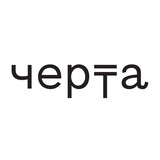group-telegram.com/chertamedia/6987
Last Update:
«В дискуссиях с языком вражды присутствует много наблюдателей. Они становятся свидетелями, а то и соучастниками воспроизводства стереотипов, предубеждений, умаляющих достоинство и даже отрицающих право на существование представителей конкретных групп. В конечном итоге, расчеловечивающее поведение появляется за счет языка вражды, который может быть скрыт благодаря использованию не откровенно оскорбительных слов».
Мы сталкиваемся с языком ненависти ежедневно: он льется из соцсетей, телевизора, высказываний чиновников и просто от знакомых. Иногда этот язык прячется за безобидной формой, но он все равно разжигает ненависть, мешает услышать и понять чужую точку зрения и развивает черно-белую оптику, где есть только «мы» и «чужаки».
👉 Что вообще такое язык ненависти и вражды? Откуда он берется и чем опасен? Можно ли защищать свое «добро» любыми, в том числе и ожесточенными действиями? Читайте об этом в интервью с культурологом Оксаной Мороз: https://tinyurl.com/cherta-media/interview/oksana-moroz-interview/.
Читайте на нашем сайте с VPN.
🖤 Подписывайтесь на «Черту», чтобы не пропустить новые тексты
BY Черта
Warning: Undefined variable $i in /var/www/group-telegram/post.php on line 260
Share with your friend now:
group-telegram.com/chertamedia/6987
